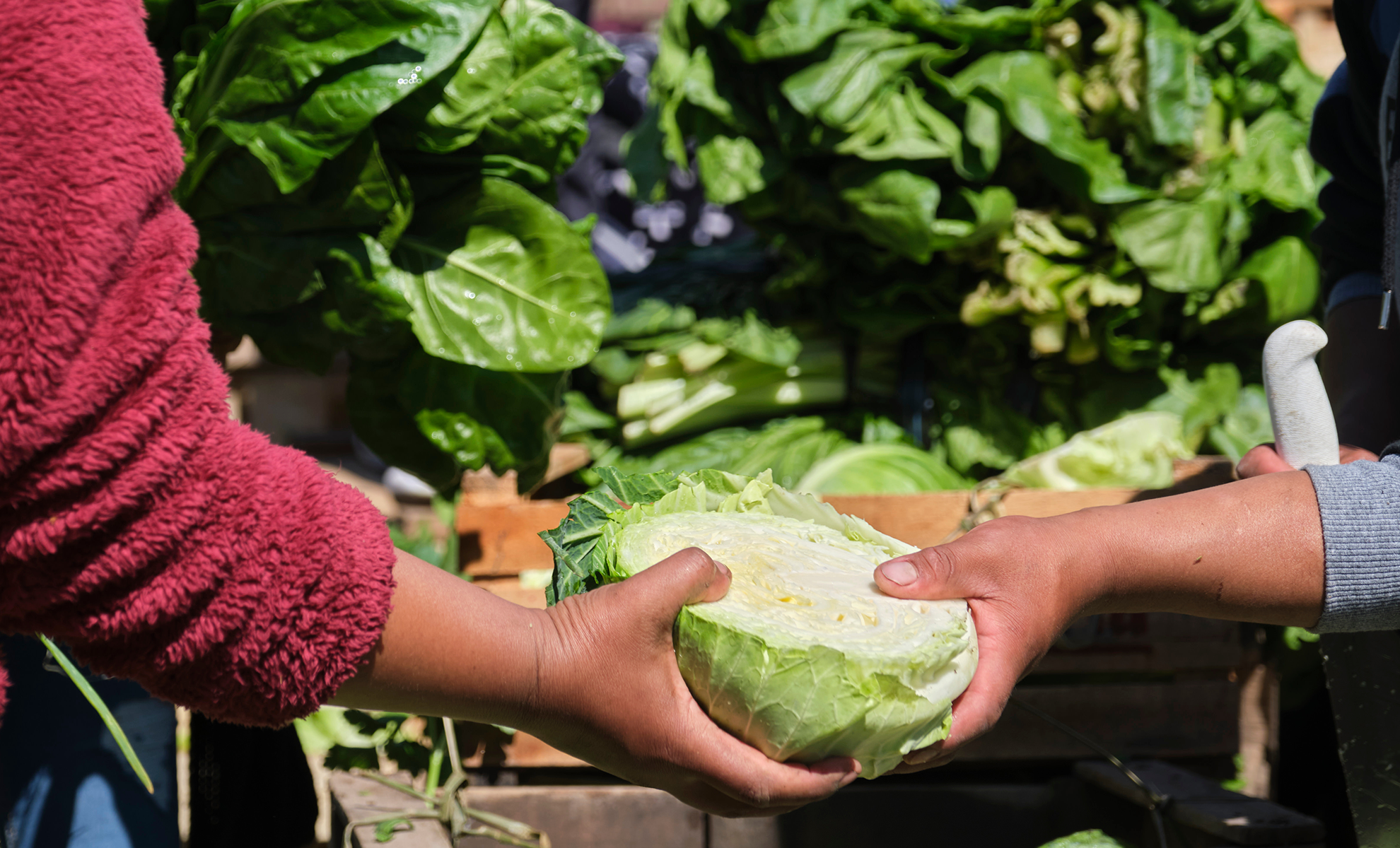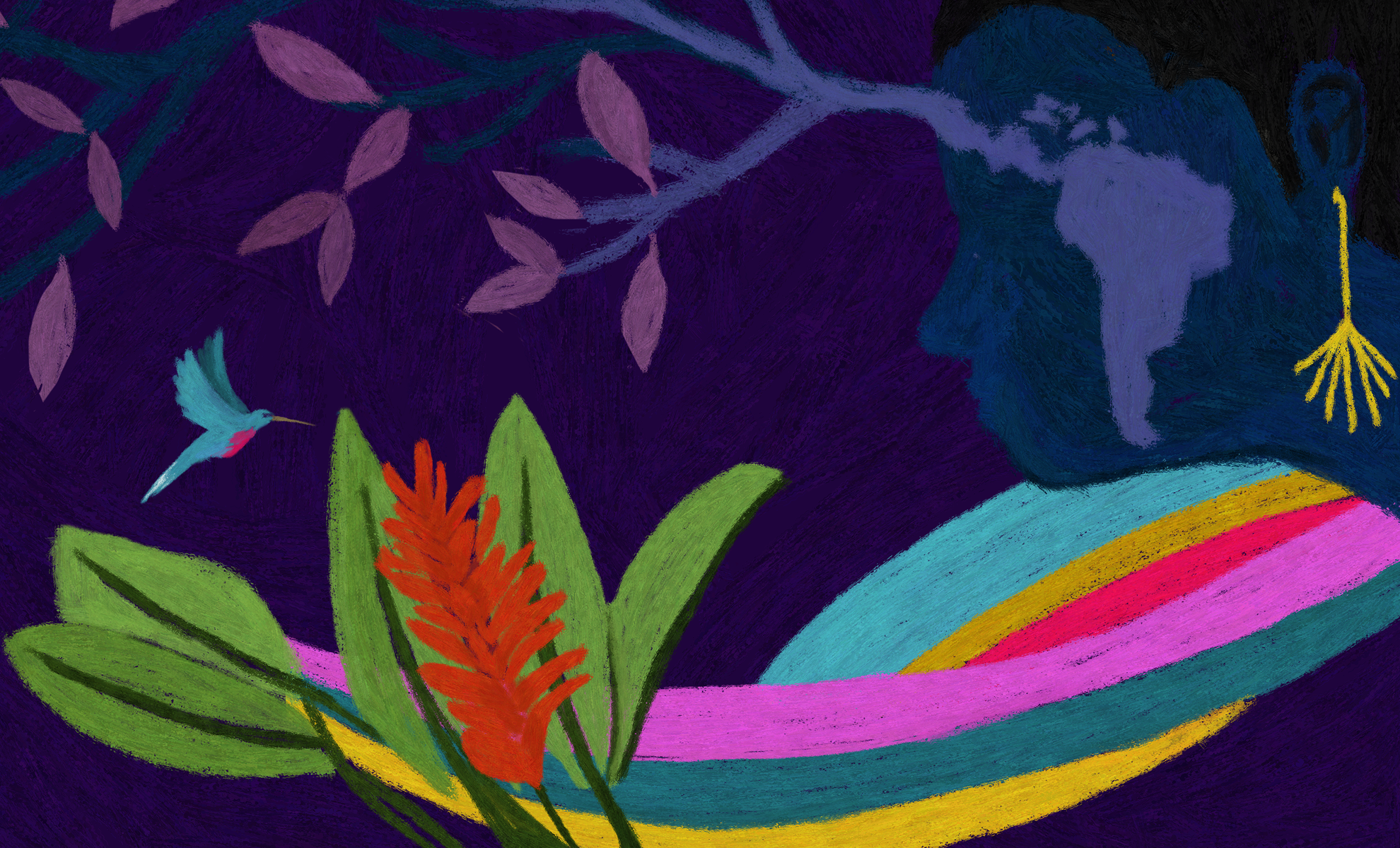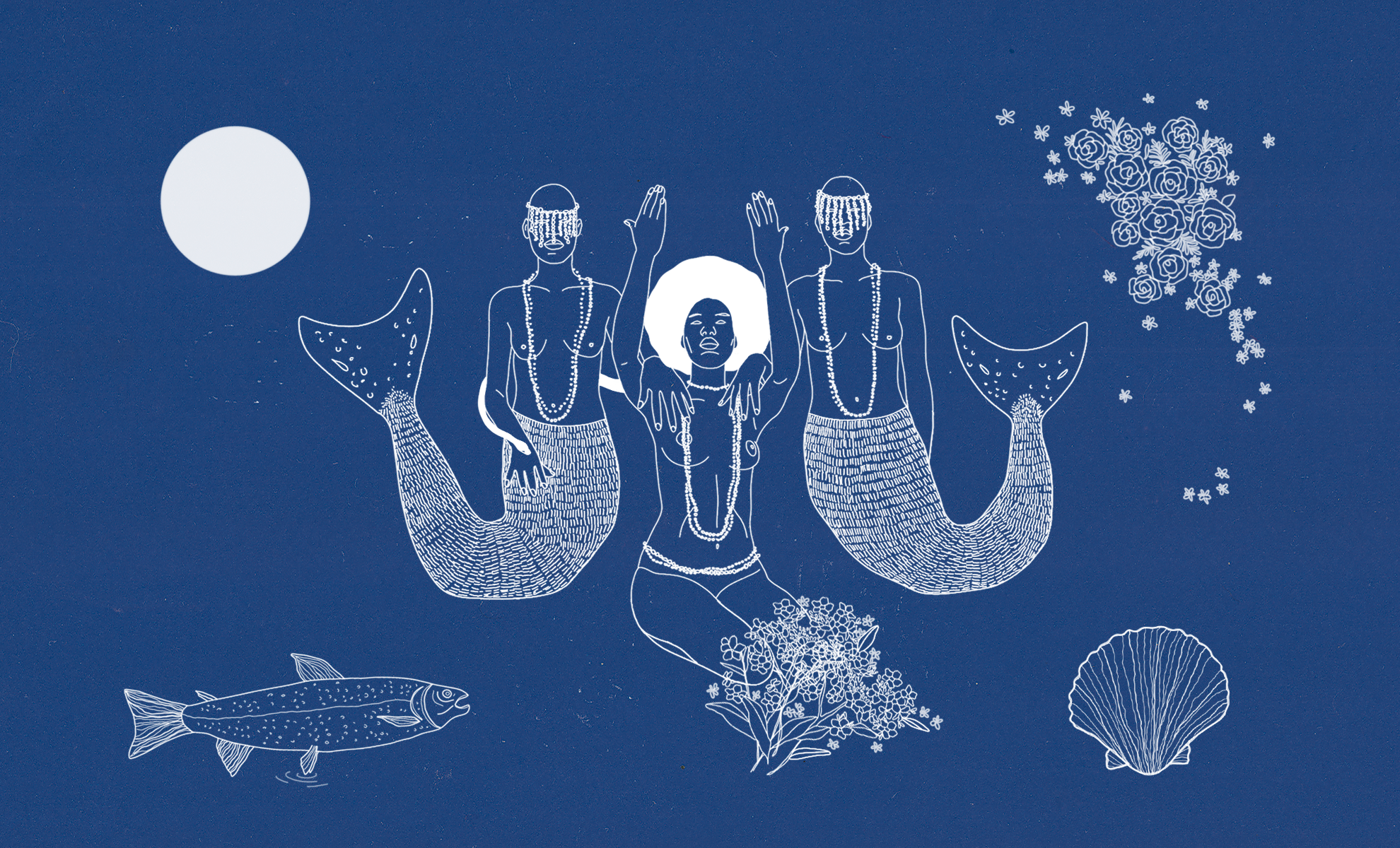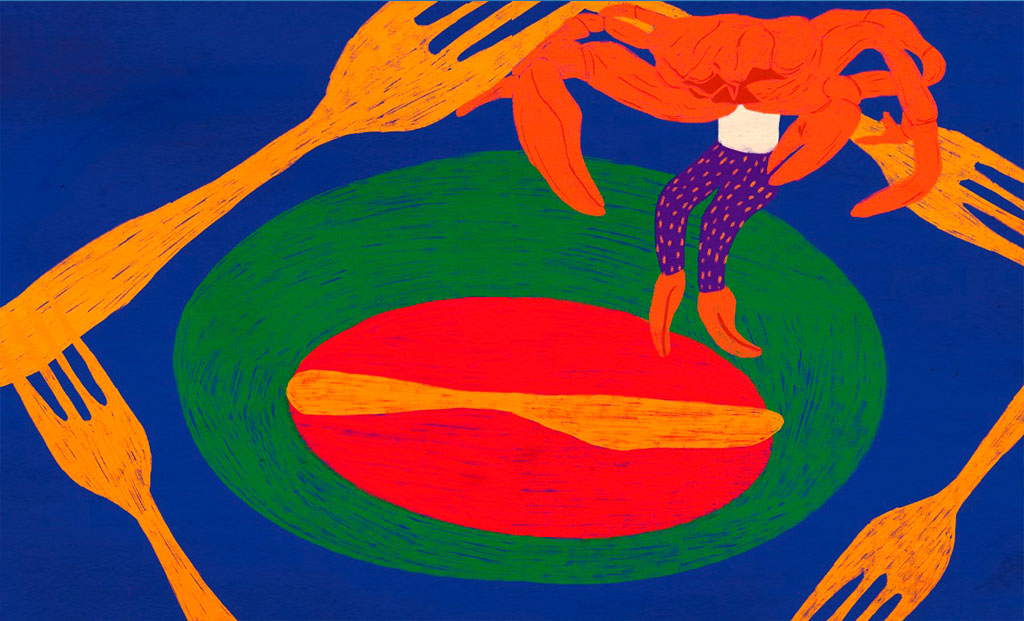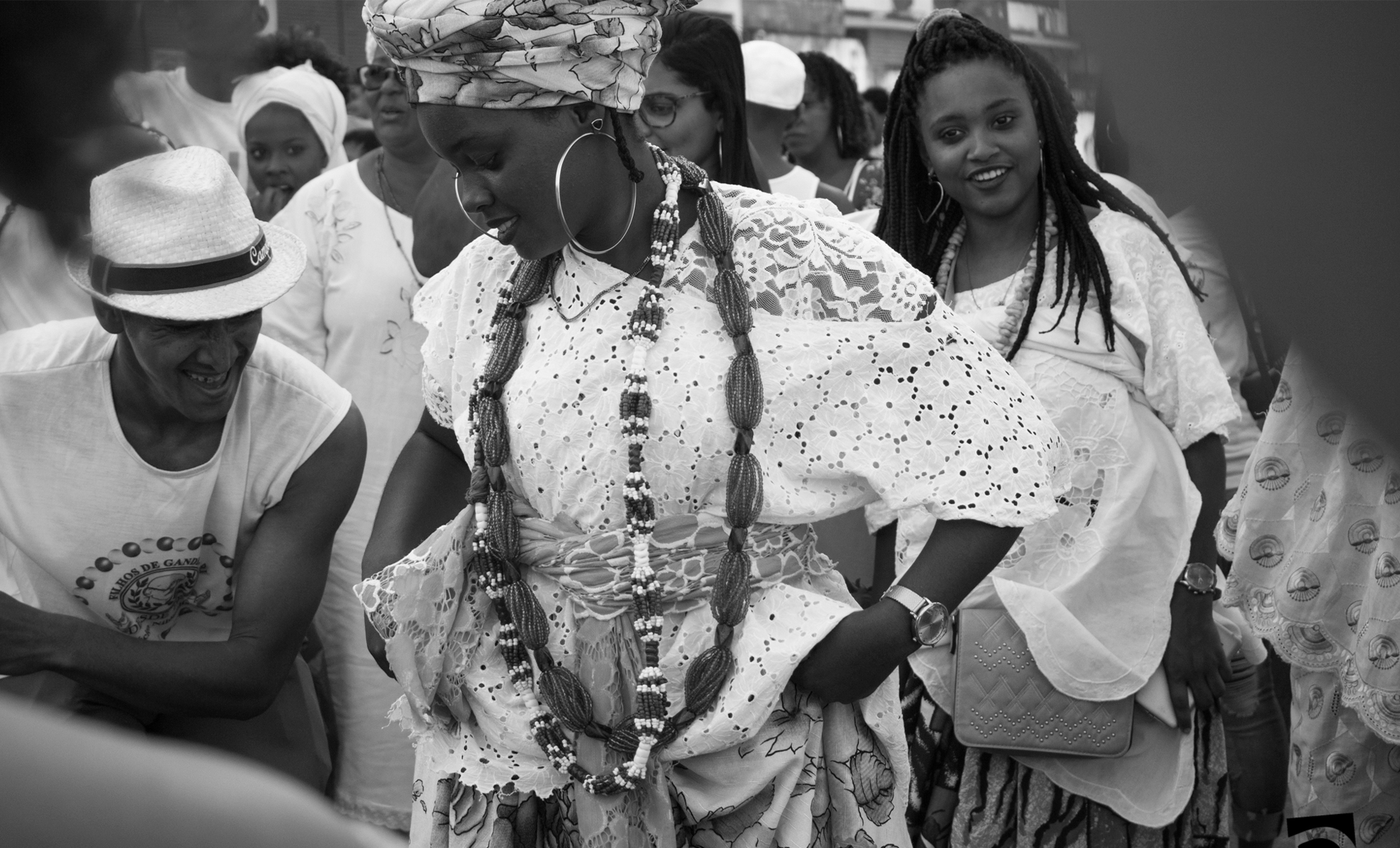



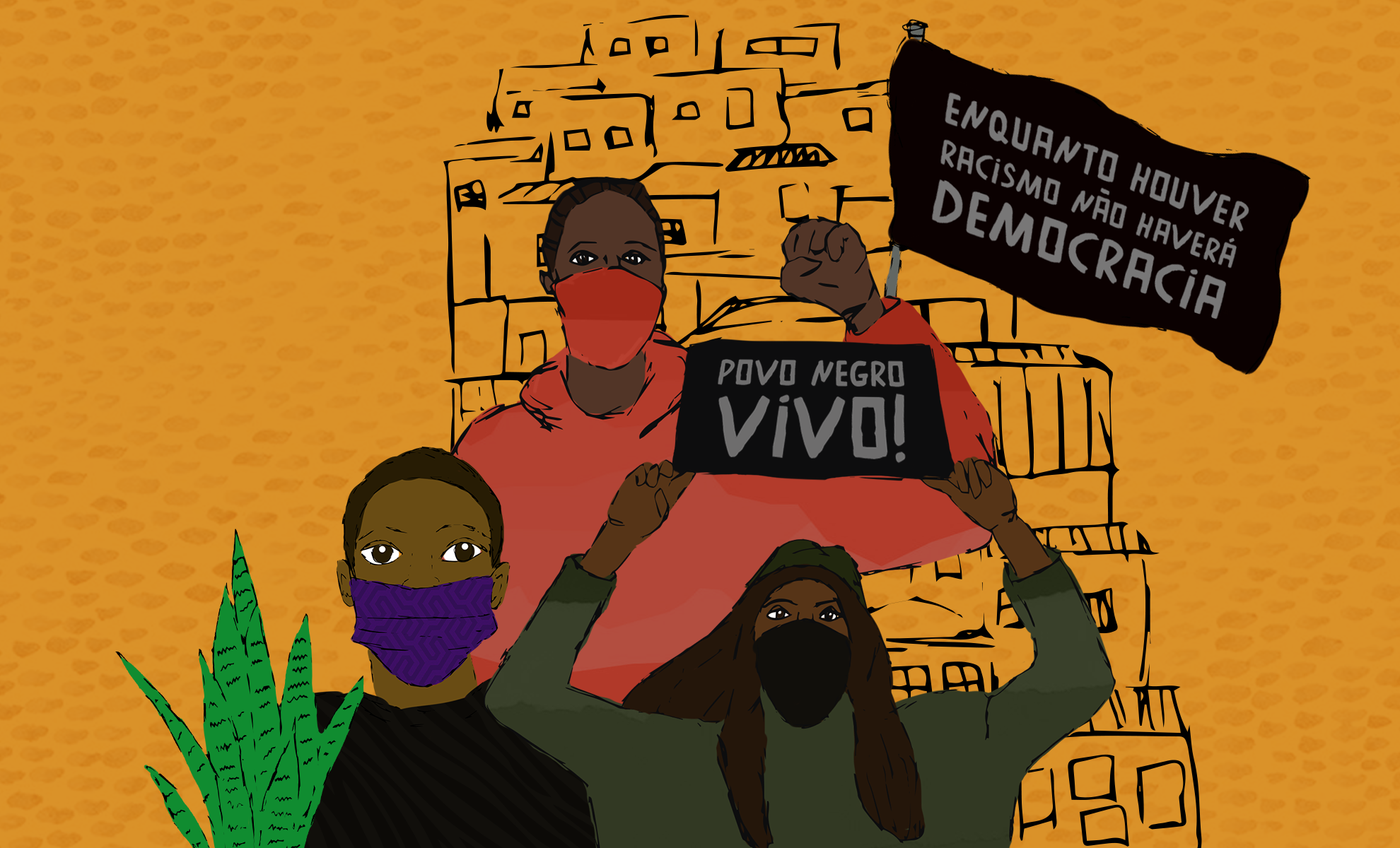
Inajah Cesar, Inah, is from Rio de Janeiro, its shoreline and dense forest. She is the product of public schools, an early childhood educator. She is driven by encounters, which she says teach her how to listen, draw and embroider stories and images. Life led her to the Pontifical Catholic University of Rio de Janeiro (PUC-Rio), where she earned a degree in Industrial Design – Graphic Design. As part of her studies, she developed research on text, drawing, and embroidery in the "From Weaving to Text and Vice-Versa" extension course, which provided an intersection of traditional, manual, and feminine knowledge. Together with her partner, she is currently building the paths of the Quitanda studio, a small space for creating graphic design, illustration, editorial, and print projects, through active listening, partnership, and sincere exchanges.
Ibirapitanga presents the series "Antiracism: Black Marches and Uprisings in Brazil" featuring Inajah Cesar’s illustrations inspired by important moments in Black movements in Brazil. The first illustration of the series seeks to reverberate the voices that needed to occupy the streets during the COVID-19 pandemic to assert that "Black lives matter." Then Inajah looked at the 2015 "Black Women’s March Against Racism, Violence and for Well-Being" and the 1995 "Zumbi dos Palmares March: Against Racism, for Citizenship and Life.”
Besides refining her eye and creative process for Black productions, Inajah says that this work enabled her to enhance her understanding of these movements and actions from which she used to feel more distant. She says that "it was important to bring these marches that speak about me, about my people, and about people who put their bodies in motion to defend or fight for such important and necessary collective ideals. It was beautiful to see and base my creativity on real people and actions full of warmth and power. I mainly learned that there are countless ways to support, fight and share a struggle, with devotion, beauty, but with an observant eye and a firm pulse."
The production of the series "Antiracism: Black Marches and Uprisings in Brazil" relied on the loaning of photographs and/or information from the archives of partner organizations, to fuel the artist's creative process. We would like to thank Pedro Borges — Alma Preta, for providing photographs for the illustration on the "Black Uprising"; the team of the Geledés Black Women’s Institute, for providing information for the illustration on the "Black Women's March", and the team at the Irohín Afro-Brazilian Documentation, Communication and Memory Center for providing photographs for the illustration on the "Zumbi dos Palmares March."







